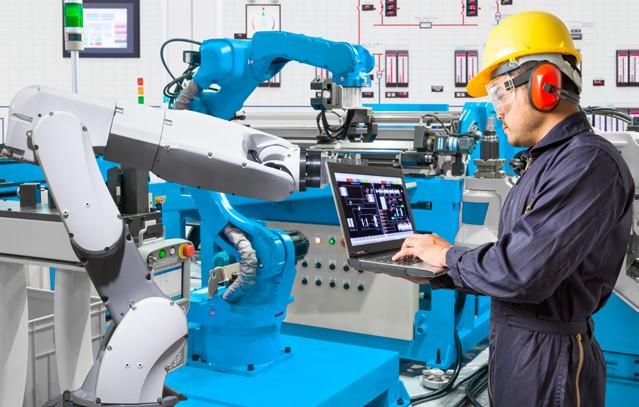CONTROLLERS
ADDING MACHINE CONTROLLERS TO THE FACTORY FLOOR Martin Gadsby explains how factory automation projects can leverage the most suitable machine control solutions.
M
achine controllers are at the heart of Industry 4.0 applications. They allow factories to run automated processes while ensuring product quality, consistency, efficiency and high throughput. This is why choosing the right solution and implementing it correctly can make a significant difference to the success of an industrial automation project. Having a clear overview of the intended automated application and what it needs to achieve are the first aspects to consider when selecting a machine controller. This helps determine the equipment’s operational needs and the desired results expected from its control system. Based on this knowledge, businesses can identify controllers that meet these requirements and functions.
The right capabilities Traditionally choosing a controller would come down to whether programmable logic controllers (PLCs), programmable
automation controllers (PACs) or industrial PCs (IPCs) were most suited for a given application. However, the boundaries between PLCs, PACs and IPCs have now blurred, as their functionalities are often overlapping. So now it is important not to focus on identifying a type of controller, but rather choose a product with the capabilities to address the application’s known key requirements. Also look for solutions that have the ability to grow in the future to address the need for change. For example, when the position or velocity of machines needs to be operated with high accuracy and precision, it is necessary to implement high-performance, high-speed motion control solutions. Therefore, the controller should offer appropriate response times and dynamic tracking, independently of whether it is a PLC, PAC, IPC or dedicated controller. Similarly, if an application requires the use of Proportional Integral Derivative (PID) algorithms to regulate a machine or process, such as temperature control,
choosing a solution with built-in PID functions can be helpful, making it possible to reduce the time, cost and resource utilisation associated with programming these functions. Systems integrators should be able to help navigate the variety of solutions available and can help to determine the best controller for a particular application. Consulting an expert from the very beginning of a factory automation project – from the very start of the process design before control platform vendor discussions start – will help lead to the specification of the correct control platform and also to the optimisation of factors such as product and production quality, efficiency and ease of use, all of which can have a direct effect on return on investment (ROI). It is important that the initial process design is completely agnostic in relation to control system vendor. However, it is critical that an automation expert is involved, to point out at an early stage a function or feature that may have a
Skilled automation specialists and system integrators can help deliver machine control solutions that address the particlar needs of an application.
20
September 2020
www.controlengeurope.com
Control Engineering Europe









